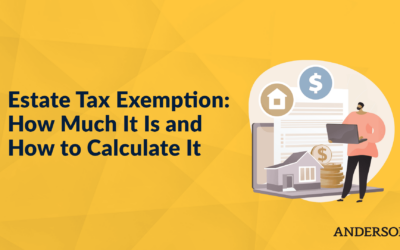A nest egg is a sum of money set aside for the future. For most Americans, that means retirement. Since retired individuals will no longer be working, they will need financial resources that have been set aside for this very purpose. Here are just a few ways you can work to build a nest egg for your future.
8 Reasons to Build a Nest Egg
- Cover Everyday Expenses
- Achieve Financial Security
- Secure Medical Care
- Facilitate Retirement
- Pursue Meaning
- Travel the World
- Get Disciplined
- Leave a Legacy
In case you’re wondering, the term “nest egg” itself comes from an old farming practice where farmers would leave one egg in the henhouse to encourage the hens to lay more eggs. It’s an apt metaphor because most nest eggs are built from assets that grow with compound interest—like stocks, bonds, and mutual funds.
Most Americans contribute to their nest egg by allocating a portion of their paycheck to a company-sponsored 401(k) or by voluntarily depositing a portion of their earnings into an IRA. Both of these account types have special tax protections, which allows the money in the account to grow unfettered by taxes. Many companies have a matching program where they will contribute a matching amount of money placed into the retirement account by the employee, up to a certain percentage.
Generally speaking, nest egg investment strategies for most consumers involve putting their money into some sort of stock index or mutual fund. These funds are managed by investors, so the individual building the nest egg doesn’t need to think twice about what to do. Behind the scenes, money managers will often grow a nest egg with stocks while the individual building the nest egg is still in the workforce. While stock prices do go up and down, over the course of several decades, their overall value improves.
But because there is a short-term volatility aspect to the stock market, once the nest egg owner retires, their nest egg might be moved into a more stable type of security, like government bonds. Though these types of securities won’t yield the serious growth of stocks, they are far more stable and can keep the nest egg at a comfortable number while the retiree draws their income from a stable source of funds.
It’s important, however, to keep in mind that this description is very general. There is much more that goes into balancing and reinvesting behind the scenes of a successfully managed mutual fund or 401(k).
Unfortunately, many Americans do not have the same level of financial access to long-term savings. While most people know they need to save and develop sizable nest eggs, many Americans are woefully unprepared for retirement. In fact, some estimates suggest that as many as 50% of US households are at risk of not having enough money to fund their retirement needs.
There are a number of reasons why it’s important to put away for retirement. Fortunately, building a nest egg is something that can be done one dollar at a time with the right discipline and financial guidance.
8 Reasons to Build a Nest Egg
Cover Everyday Expenses
The first reason you want to build up a nest egg is to cover your everyday living expenses and retirement needs when you leave the workforce.
As of 2020, the national Social Security benefit average was around $19,400—which translates to around $1,600 per month. This amount may be slightly greater for couples, but even so, it would be difficult to live on that amount on a monthly basis, especially if you have not paid off your mortgage.
The truth of the matter is that Social Security cannot be exclusively relied upon for retirement. Most Americans will need more than the amount Social Security provides for housing, utilities, food, transportation, and medical expenses. This reason alone should provide sufficient motivation for anyone to build a savings account, but as we will see, there are many additional reasons why a nest egg is important beyond everyday purchases.
Even if you qualify for other benefits like a pension, you will most likely need other financial resources to live comfortably during retirement.
Free Strategy Session with an Anderson Advisor
Receive a detailed risk assessment to assist in lowering problem areas that could wipe out all of your assets with one wrong move. Speak with an Anderson Professional Advisor to get your FREE Strategy Session.
Limited-Time Offer: ($750 value.)
Achieve Financial Security
Building a nest egg also creates financial security, even before you retire. A nest egg contributes to your net worth. You can calculate your net worth by adding your assets and subtracting your debts and liabilities. The vast majority of Americans have a negative net worth.
Working towards a positive net worth can put you in a much better financial situation when it comes to getting approved for a home loan, purchasing a vehicle, or refinancing student loan debt. Building your nest egg can also provide more leverage in pursuing an alternate income source, like real estate or business.
Your financial future will become much more secure with a wealth management strategy. Even before your retirement savings become your primary source of income, personal finance and wealth planning can make life much easier by providing financial security. It goes without saying that you’ll appreciate your nest egg even more after you enter your retirement years.
Secure Medical Care
Americans are living longer, which means that nest eggs will need to cover their longer lifespans. Unfortunately, old age can bring unexpected medical expenses that aren’t cheap, even if you have medical insurance or Medicare.
If you don’t have a nest egg, a necessary medical procedure could create unnecessary stress and additional health problems. The best way to prepare for these unexpected health problems is by creating a nest egg. Saving for the future now will create a much more comfortable lifestyle.
Other factors to consider are the cost of aid and medical care should you or your spouse become incapacitated or require daily living assistance.
While elderly individuals begin retirement in their own residences, many will eventually need to hire in-home care or transfer to a residential facility that provides care. We all hope to age gracefully, but in any case, it’s best to have a nest egg to cover medical expenses rather than trying to figure it out when it’s too late.
Facilitate Retirement
Having a nest egg in place and meeting your goal for savings means that you can retire when you want to. The traditional retirement age has long been 65 years of age, but more and more Americans financially need to work into their late 60s or even early 70s.
Unfortunately, this strategy will not always pan out successfully. In many cases, health problems will prevent people from working too far into their old age. And even if you’re in relatively good health, nobody wants to be locked into a career longer than they want to be.
Saving a nest egg can facilitate your ability to leave the workforce when you want and enjoy your retirement years. In fact, if you stay on track with saving, you may even be able to plan for early retirement.
Failure to have a financial plan for your retirement may force you to work longer than you want or are able. While it’s always good to hope for the best, you must prepare for the worst. Setting aside extra funds for future health care emergencies allows you to focus on enjoying retirement instead of worrying about its pitfalls.
Pursue Meaning
Many Americans who retire now find themselves with ample time on their hands. Retirement can become an opportunity to pursue a new degree or finish one you started long ago. Many retirees take up a new hobby or spend more time enjoying an existing one. A nest egg allows you to pursue whatever matters most. You’re free to paint a masterpiece, get a Ph.D., or write a book.
Before retirement, socking away large amounts of money into a financial institution may not seem so inherently meaningful, but over time, the dividends and investment returns of your retirement account will provide a significant bankroll to fill the last few years or decades of life with ample meaning. It’s not always easy to maintain the discipline required for building a nest egg, but if you view your retirement savings as a gateway to pursuing what you really care about in life, it can make the process a bit more exciting.
Travel the World
In a similar vein of thought, many people look forward to their retirement years to travel. Some retirees have prioritized their nest egg so much, they are able to travel the world for the majority of the year.
Even if you have no interest in becoming an international globetrotter, having retirement savings will allow you to travel for family-related reasons, such as weddings, births, graduations, and other life events.
It can be emotionally difficult to say no to travel because you don’t have the funds to make the journey, so having money set aside for family travel will certainly make your retirement years a happier experience.
For those who do love travel and learning about the world, retirement can become a great time to visit the exotic places you’ve always wanted to see but couldn’t because of work or family obligations. From taking a safari in Africa to kayaking with the orca whales in Alaska, a nest egg will allow you to experience amazing travel opportunities throughout your retirement.
Get Disciplined
Building a nice nest egg with your retirement fund requires dedication and discipline. Creating a retirement plan and sticking to it every month will improve your overall financial situation, as you’ll get into the habit and mindset of budgeting. Many people are notoriously bad at financial discipline, and they put off building up a savings account until it’s too late.
Retirement savings is one area of life that is detrimental to ignore. If you don’t prioritize it now, you will have no income to live on or cover medical emergencies in your later years of life.
Because guaranteed retirement income is so integral for living a comfortable retirement, it’s important that you prioritize financial discipline now. It might require some self-sacrifice. You might not be able to eat out as often or take luxurious vacations every year, but you’ll be happy to see the pennies add up over time and snowball into a comfortable retirement fund.
Getting disciplined about your finances now will also help you meet some shorter-term goals along the way. Once you learn to budget and stick to your budget, you’ll find it easier to purchase a new home, save for a dream vacation, or even fund a business someday.
Leave a Legacy
Most people with a family would like to leave something behind for their surviving spouse, children, or a cause close to their heart. A nest egg allows you to do all three.
Given the choice, most Americans would not want to place a financial burden on their children or grandchildren. A nice nest egg facilitates another way of leaving a legacy. Having your own source of guaranteed income means that you won’t have to rely on younger family members to meet your retirement financial needs. This alone can be a huge gift and leave a lasting impression as a legacy, especially if your children are grown and have their own responsibilities and children to attend to.
By prioritizing your nest egg to meet your retirement needs, you may even have enough money leftover to generously help your children or grandchildren by paying for things like college tuition, family vacations, and gifts. This all becomes much easier when you meet the financial goal of building a nice nest egg.
What is the Average Retirement Nest Egg?
The average retirement nest egg varies depending on age and location (along with lifestyle factors). It’s estimated that as of 2018, the average American has roughly $95,000 put away.
It’s important to remember that a nest egg is meant to provide for your needs throughout your retirement. So, while six figures may seem like a lot of money, it’s not that much if you live in a household that makes $50,000 per year. Most financial planners recommend budgeting for a nest egg in the seven figures so it can fund your needs and lifestyle for many years to come.
While building a nest egg worth millions may seem overwhelming, consider that people are living much longer lives. In the aforementioned example of a household earning $50,000 per year, a million-dollar nest egg would only cover 20 years of basic living expenses. If you plan on living into your late 80s (which we all hope for), you’ll want to budget for a much bigger nest egg.
How to Build a Nest Egg
The first step towards building a nest egg is to make a commitment to saving money every month.
If you work for a company that provides a 401(k) and matching program, take advantage of that free money. Remember that compound interest can make your money grow exponentially, so the more money you put into your retirement account now, the bigger your nest egg will be in the decades to come.
For many Americans, the next step towards saving a sizable nest egg is working with a financial advisor. A savvy financial advisor can guide you through the world of tax-free investments and tax strategies to maximize the value of your retirement portfolio when it matters most: during retirement. A financial advisor or financial planner can also help you determine how much you’re comfortably able to put away every month. While some experts suggest putting away a small percentage of your paycheck, others recommend going up to 15-20%.
Many Americans rely on their monthly contributions to a 401(k) or IRA to build their nest egg, but there are other ways to set aside money for retirement as well. Real estate investing, when done correctly, can create an additional revenue source.
When you retire, these real estate assets can assist with covering your monthly expenses. If you don’t need the rental income generated from these properties before retirement, some or all of it can go into your nest egg, which will certainly increase its size and possibly facilitate an earlier and more enjoyable retirement.
All this work towards building a nice nest egg will pay off with a feeling of financial security. In fact, studies show that most millionaires actually hit their seven-figure status by simply putting money into retirement each month and sticking to their financial goals.
The fact of the matter is that the majority of millionaires in America did not inherit their wealth or obtain it from an exorbitant income. They are everyday working people who use sound financial strategies to slowly build up a steady nest egg over the course of several decades.
Start Your Nest Egg Today
A nest egg is not a luxury. It’s a must-have for Americans who are planning to leave the workforce for retirement. Whether they want to or not, most Americans will need to retire at some point, and they will need monetary resources set aside so they can achieve financial independence during the last years of their life.
If you’re looking to build a nest egg so you can live your retirement years on your own terms, Anderson Advisors can help. Our experts can show you how to protect your assets, grow your wealth, and tackle taxes strategically so you can grow your nest egg and enjoy it during the retirement years to come. Schedule a complimentary Strategy Session today to get started with a professional Advisor. You can schedule online or by calling 888.871.8535.
Tax & Asset Protection Workshop
Learn about Real Estate & Asset Protection at our next
FREE LIVE STREAM














